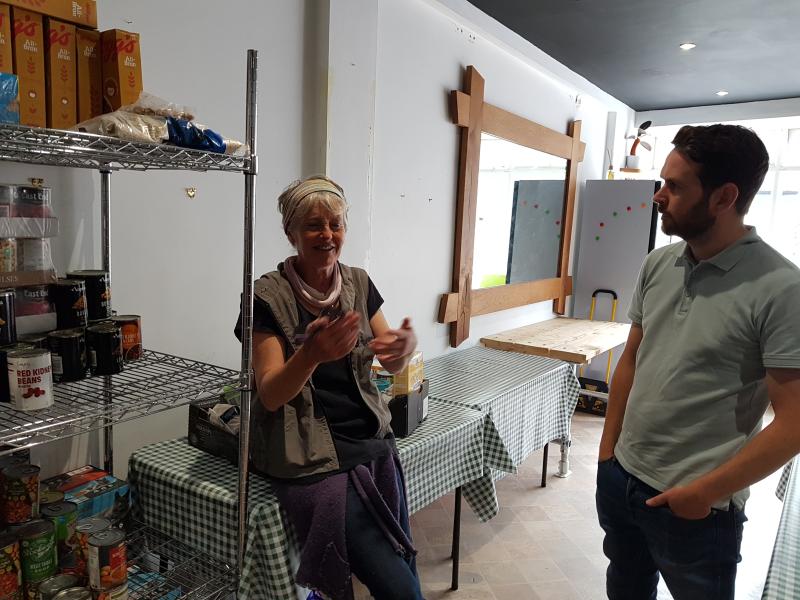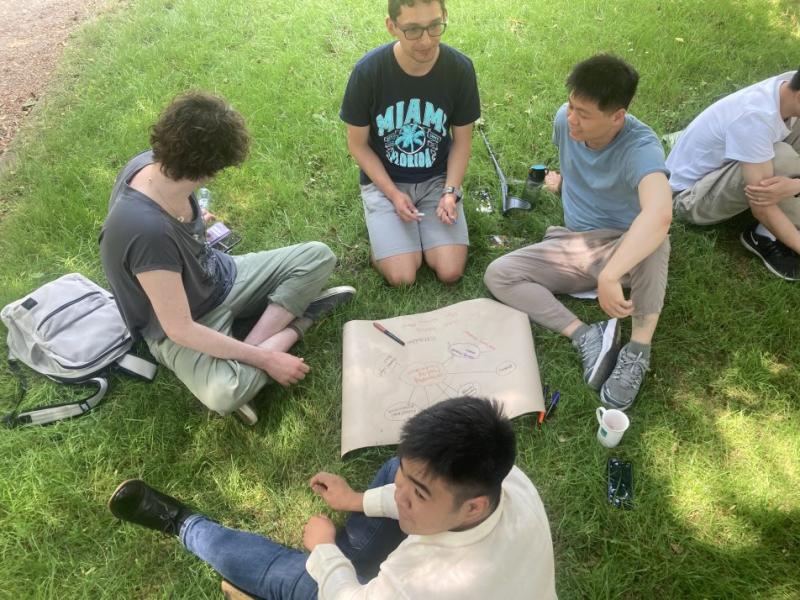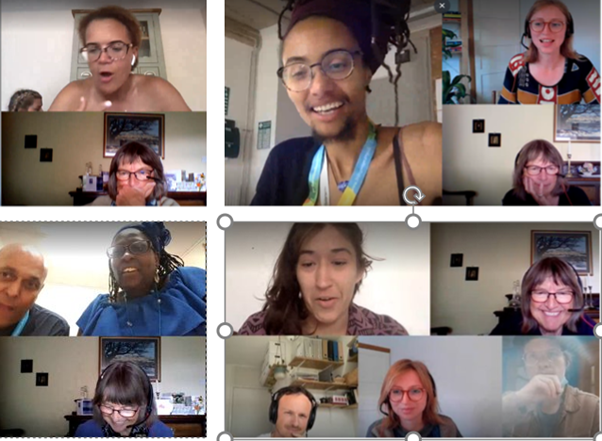Christian Graham08 Oct 2024
In the Experiments team, we explore innovative solutions when working with local communities - learning what works, what needs rethinking and what can really make a difference for grassroots initiatives. Our work is built on calculated risk, genuine partnership and the adaptability that community projects need to succeed.
Here are some key insights we've gathered along the way.
A different attitude to risk
One of the most defining aspects of our team is our approach to risk. We’re permitted to take more risks than most of the organisation—but we also recognize that inaction is a risk in itself. Better to just start somewhere. Many of the choices we face are Type 2 decisions which are reversible, and can be changed if needed, (unlike Type 1 decisions which are largely irreversible). The key is to start small, experiment fearlessly and view potential mistakes as learning opportunities rather than threats to a campaign’s success.
We embrace tools like pre-mortems, even AI-assisted ones, to anticipate and manage risks. Things may not work out as hoped and that’s okay—it’s the price of progress. By creating a culture that doesn’t punish failure but rather uses it as a source of insight, we’re able to innovate and build more effectively.
Help where it’s most needed
Communities often need time, money and hands-on support rather than more ideas or solidarity. We can bring Friends of the Earth’s particular skills and contacts to the table:
- Help with fundraising: Grant applications, mini-grants, letters of support—these can be a lifeline.
- Provide practical resources: Political contacts, access to media, or opportunities for skill-building are often more valuable than abstract ideas.
- Pay for contributions: We will compensate individuals and groups that contribute to our work, acknowledging that their time and insights are of value.
The takeaway here is simple: we must be prepared to roll up our sleeves and do the legwork and be directly helpful.
The role of the individual
Flexibility is crucial. While Friends of the Earth’s name may open doors, it’s the personal relationships we form that make the difference. Team members are encouraged to build those personal connections, even if that means stepping outside the confines of their official job descriptions.
Whether it's joining a community gardening project, supporting a local event or working on community strategies, we encourage our team to be grounded in place and give back through their skills. These relationships are often held over many years, creating trust and shared purpose.
Reaching through others
Friends of the Earth has a lot to offer communities —but some can be better approached through key partners. Partnering with groups like the Black Seeds network has enabled us to connect more authentically with diverse communities. For example when explaining our offer of the Local Nature Innovation Fund. Effective community engagement often means recognizing when to work in partnership with others, rather than forge ahead on our own.
Have a clear offer- but be open co-creation
When engaging communities, it’s crucial to have a clear, helpful offer ready, like funding opportunities such as the Local Nature Innovation Fund. However, balance is key: we also need to listen and be willing to adjust our plans to suit the community's needs. Real co-creation means showing up without a pre-written agenda, being ready to pivot and understanding that the final outcomes might look very different from what we initially expected.
And be clear about boundaries and timelines. Many of our community relationships will be time-bound and we need to manage expectations from the outset, so communities know when—and how—our involvement will end.
Geo-adaptation: approaches tailored to individual communities
We’ve learned that a one-size-fits-all approach rarely works. Every community has its own unique culture, needs and dynamics, so we adapt our strategies accordingly. Geo-adapting our interventions ensures that what we’re offering resonates locally, making our efforts more relevant and effective.
Building team confidence for engaging with communities
Community engagement can be intimidating, especially for less experienced team members. To help build confidence, we use role-playing exercises, often with AI simulations, to practice conversations before meeting community members. We also pair newer team members with more experienced ones during initial engagements and ensure diversity in age and gender within our teams to build empathy when talking with a range of different community members.
Be a coach, not just a partner
One unexpected insight we’ve gained is that communities often value us as an independent sounding board—a coach, rather than just a partner. Offering coaching calls has proved to be a valuable space for reflection and working through challenges collaboratively. These aren’t framed as training sessions but rather as open conversations where insights can emerge naturally.
Tell stories and share learnings
Every community project is a story and storytelling adds value beyond the work itself. Recording what individual projects have learned—and showcasing it on our website—gives those stories added weight and credibility for their own stakeholders.
Regular reviews
Finally, we conduct regular reviews to assess what’s working well and what needs a closer look. These reflections are critical—they help us to continuously refine our approach, stay responsive to the communities we serve and adapt to new challenges as they arise.
Community engagement is complex but it’s also endlessly rewarding. We’ve learned that effective partnership involves genuine listening, tangible support, a willingness to take risks and, most importantly, the ability to adapt and grow alongside the communities we work with. It’s a dynamic process—but the potential for positive change is immense.
If you’re inspired by our approach or have ideas for collaboration, we’d love to hear from you. Let’s work together to create lasting impact in our communities.




